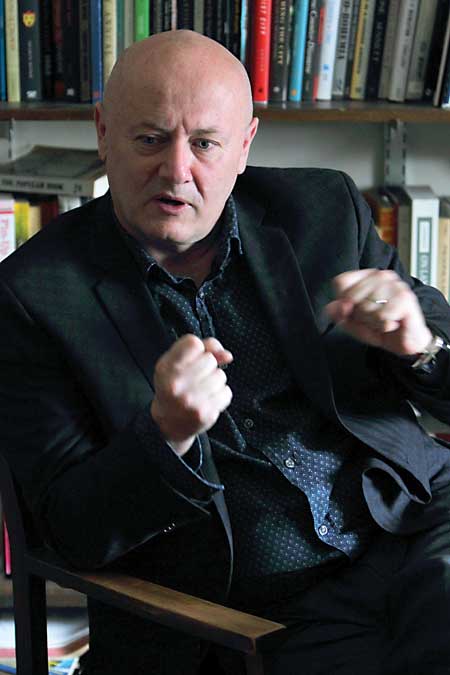
Will Straw will bid farewell to his post as Director for the McGill Institute for the Study of Canada (MISC) in August after five years at the helm. But he has some business to attend to before he returns to academic life in the Department of Art History and Communications Studies, namely the annual MISC conference, Canada on the Global Stage, set for Feb. 11-12. In an interview with the Reporter, Straw looks back at MISC’s last five years and ahead to what the future holds for him.
Looking back, have you taken MISC in the direction you intended when you first began as Director five years ago?
Any Director of MISC seeks a balance between pursuing his/her own interests and responding to the wide range of concerns shared by Canadians. I came to MISC with certain clear interests – crime, cities, culture (three “C”s, as it turns out) and three of the five annual conferences I organized dealt with those. I think I’m proudest of last year’s conference on Cities, where we had mayors, activists, journalists and experts of all kinds addressing the challenges facing Canada’s urban centres. When I took on the directorship, in 2011, I said that I wanted to do a number of things: expand the international reach of MISC, involve students more in research, and respond to Canada’s diversity.
I haven’t accomplished everything I wanted. But we have done events around the world, in Latin America in particular, which have helped to increase the understanding of Canada, and in particular of the cultural activity of its indigenous peoples. With the help of some generous donors, we’ve created research internships for undergraduate students, letting them work with McGill professors and visiting scholars. I’ve tried to make sure that our conferences include a wide range of voices. I’m particularly proud of the fact that our last two conferences have had gender equity among the speakers.
On the negative side, I was Director of MISC during a five-year period in which it was hard to get the government and public service engaged in outside events. Things have changed a lot in Ottawa since November, and I’m glad that my successor will deal with a government more interested in engagement with universities and other institutions outside of government.
What were some of the highlights/your proudest achievements at MISC under your leadership?
I’m very happy to have been part of the introduction of McGill’s first-ever Indigenous Studies Program, which is very popular among students and has been much needed for a long time. Our Petro-Cultures conference, in 2014, was marked by lively debate and I think that can only have been positive. We’ve done public events that were very lively and in the best spirit of what McGill and MISC might be – an afternoon symposium on the future of bilingualism, for example, which featured speakers from all sides of this issue. We held major public events with federal party leaders in Toronto in 2015 that attracted large audiences and received lots of media coverage. And, over the last five years, we’ve hosted visitors (students and scholars) from Cuba, Brazil, Mexico, Colombia, Hungary, the United Kingdom, the United States, China and other countries.
What made you decide to focus the MISC annual conference on “Canada and the Global Stage?”
It had been a decade or so since MISC held a conference on Canada’s place in the world and the time seemed right. We knew, when we started planning the 2016 conference, that we were facing a federal election, though of course we didn’t know what the outcome would be. As it turns out, the conference will allow us to reflect on the legacy of the last government in world affairs and, more importantly, look forward to the new government’s ideas about Canada’s place in the world. Nor did we know, a year ago when planning started, what key issues Canada would be facing. As the Syrian refugee issue came to the fore, we’ve had to adapt our program accordingly. As the question of how Canada would now “brand” itself internationally came into play, under a new government, we’ve made this a key part of our conference as well.
What’s next for you?
A colleague once told me that you should never hold an administrative job in a university for more than seven years. I’ve been Director of MISC for six, if you count my year as Acting Director in 2007-2008. I’m looking forward to returning to my wonderful department (Art History and Communications Studies), which I helped to bring into existence, with my colleague Christine Ross, in 2000. I’ve banked some sabbatical time, which I’ll be taking over the next three years, and have lots of writing and research projects I want to pursue. McGill has made a very exciting choice for my successor [in Andrew Potter], and I know he will do great things.
Get more information on the Canada on the Global Stage conference and register online.
